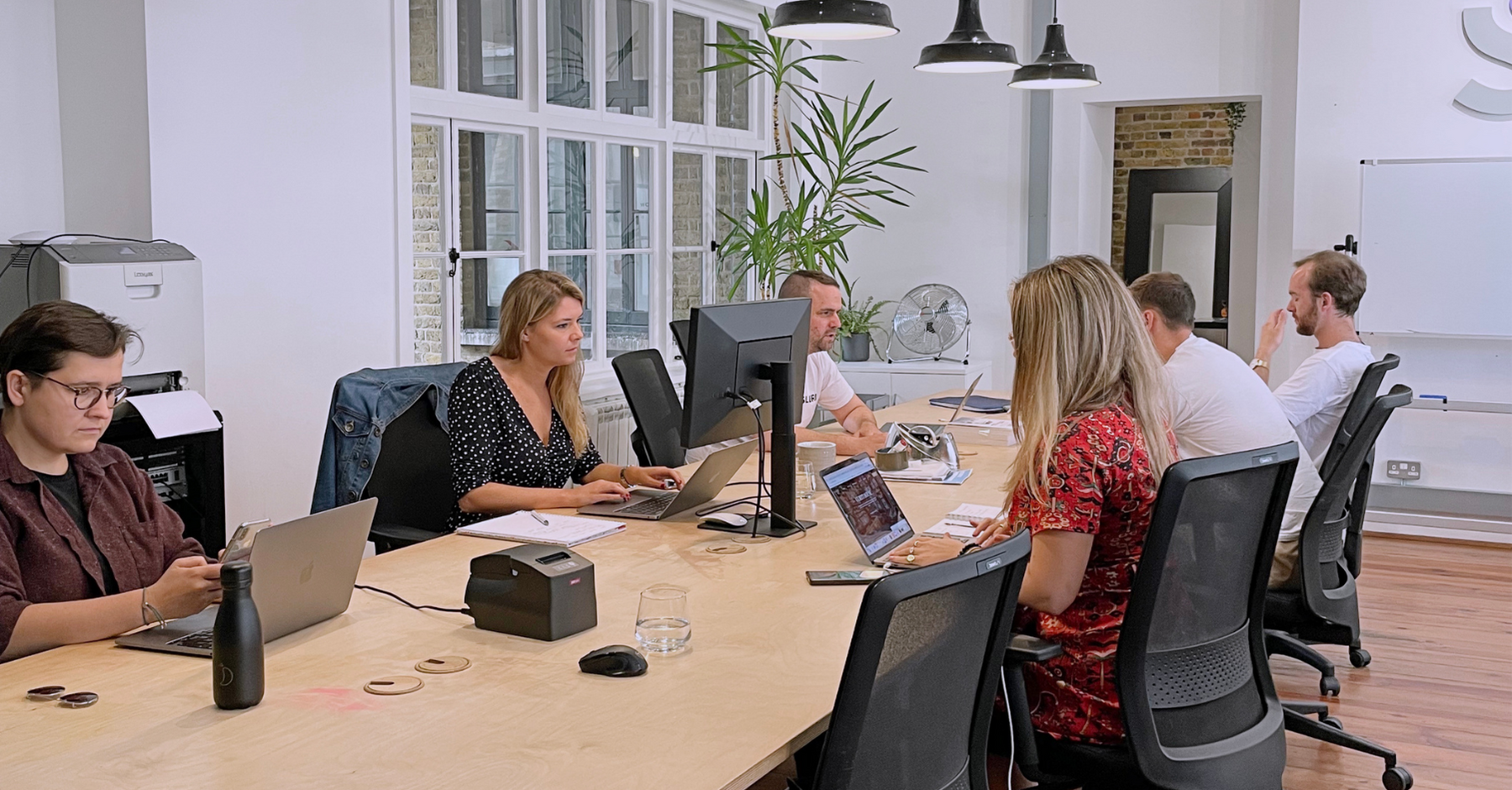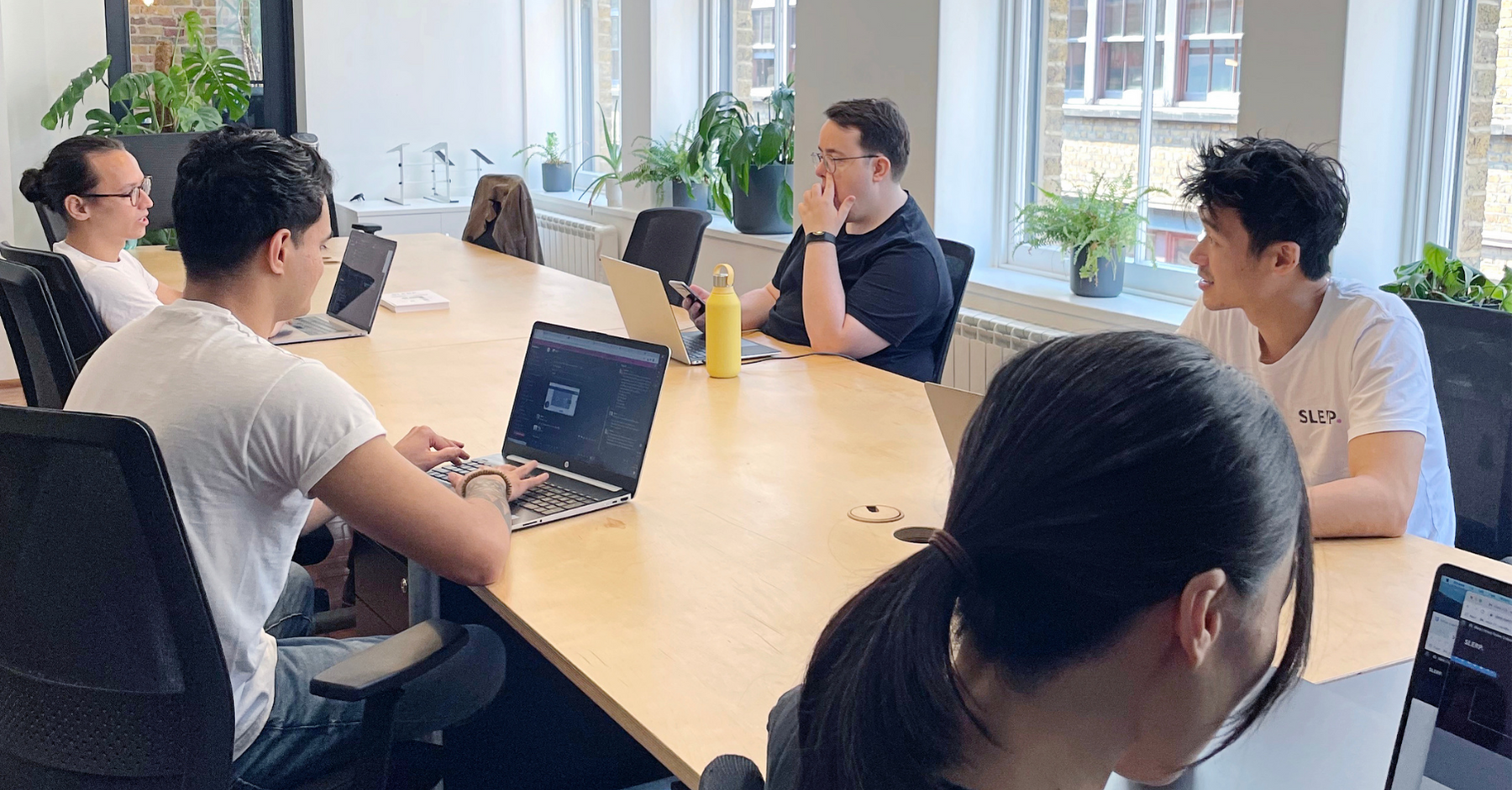Working at Slerp - Transform the Hospitality Industry
Mihaela Popa
13 Oct 2021
•
4 min read
Slerp was founded in 2016 and is a London-based company that makes online food ordering simple by enabling companies to sell their products directly from their website. They are powering hundreds of premium brands, generating millions in order revenues for businesses big and small across various sectors.
Slerp has a simple but bold vision: Be a digital business partner to hospitality brands, helping them sell more and manage better.
They are backed by Eight Roads Ventures, TrueSight Ventures, Jigsaw VC, Lord Rumi Verjee. A fantastic set of investors that has helped build some of the world’s largest companies.
We asked Steffi Thomas, the Head of Talent at Slerp, and Kai Price, VP of Engineering about their tech stack, team, interviewing process, remote work policies, and more. Keep on reading to discover what she had to say!
Tell us a bit about Slerp, what do you do?
Slerp is transforming the hospitality sector. We provide a customisable e-commerce solution for hospitality brands, enabling them to transact with customers directly from their own websites. Our partners can accept direct orders, manage their production planning, and connect to delivery services of their choice (or deliver themselves), thereby controlling their brand image and customer data.
What tech stack are you using?
We're using Elixir/Phoenix for our backend services, our UI applications use React/Typescript, and they communicate using GraphQL.
What prompted you to choose Elixir?
We use Elixir to make easy-to-build systems that highlight rapid yet reliable live updates, quick recovery from failure, and easy distribution.
What are some tech challenges the dev team is currently working on?
So far, we've built a platform for success. For our next phase of growth, we're developing new products and enhancements that enable our partners to build a successful and scalable online hospitality brand. We put our partners at the heart of everything we do and always look for ways to deliver more value to them.
Depending on your squad, you'll work on powering our partners' online ordering and partner integrations, helping them effectively engage with their customers, manage their production plans or providing a seamless order at table experience.
Their team in London and beyond is growing and they are looking for talented people to join them on their exciting journey. Check out the open roles at Slerp now!
How would you describe Slerp’s culture?
We want to enable success by giving our teams autonomy and empowering them to drive meaningful outcomes. We're committed to being open, inclusive and continuously improving. So that we can all grow, collaborate and learn through experimentation. If we make a mistake, we'll support each other in learning from them.
We want to solve problems with pragmatism and creativity, delivering value early and continuously. Last but not least, we want to have fun, be proud of what we achieve and how we achieved it.
How are you handling remote work?
We embrace a hybrid-remote working model and ensure a regular cadence of communication. We have an office in Shoreditch for collaboration and socialisation. Everyone is responsible for finding the right balance of face to face and asynchronous communication.
What’s the interview process like?
1. Initial call
An initial chat where we'll give an overview of Slerp, what we are up to and what we are looking for.
We'll also look to understand a bit about you and what you're looking for. We'll also cover the process and answer any questions that you may have.
2.Engineering question
We're assessing your understanding of how you approach solving problems, structure your code, and communicate technical solutions.
We want to understand the above and give you flexibility. So, if we can satisfy most ****of the criteria by looking at a personal project or some of your code, then we'll happily do so!
If not, we will provide you with a challenge to demonstrate how you solve the problem. It should only take you 30 minutes!
3. Technical interview
We'll start by discussing your engineering test and then focus on technical competencies.
We are trying to gauge your knowledge of building and maintaining systems and at what scale.
We'll also try to determine how well you understand the tools you use, web protocols and technologies.
4. Values and Ways of Working interview
We'll talk about how you like to work and how you could improve team dynamics.
There will be questions about your understanding of Agile and Lean practices. Most of them should be open-ended and formed to assess how you think or behave.
We'll also aim to leave plenty of time for questions!
How we assess
We’re looking to work with the best people, no matter their background. We're open to all backgrounds — self-taught, boot camps or university-educated; we don't really mind. Our assessments will be based on your ability and how you'll perform in your role, not on topics you may have studied at university. Our questions are structured so we can score them consistently. We do this because it helps us validate that questions reflect what we feel is most important. It keeps the process fair by removing individual bias and allows more flexibility in assessing, as long as the criteria are met!
We prefer situation or behaviour based questions. So that you can demonstrate your ability by contextualising your answers and drawing on your experience, sometimes we can't avoid asking fixed questions. Still, we try to keep them to a minimum.
What are some traits that would make someone successful at Slerp?
Be Empathetic: The ability to understand the feelings or experiences of others leads to more cohesive teams. Support one another, share responsibilities and promote psychological safety.
Stay Curious: Be curious about why we’re doing something, how to best deliver it, and measure success. Then strive to do it better next time.
Collaborate: Agile/Lean practices encourage collaboration, but they are only as successful as our desire to participate. Proactively seek opportunities to collaborate so that we can achieve better results.
Do Great Work: We're empowering our partners. Aim to produce high-quality solutions and do what's best for our partners. Look after them, and they'll look after us!
If you're looking for new opportunities and would like to join this amazing team, don't hesitate to check out their open roles and apply now!
WorksHub
Jobs
Locations
Articles
Ground Floor, Verse Building, 18 Brunswick Place, London, N1 6DZ
108 E 16th Street, New York, NY 10003
Subscribe to our newsletter
Join over 111,000 others and get access to exclusive content, job opportunities and more!


